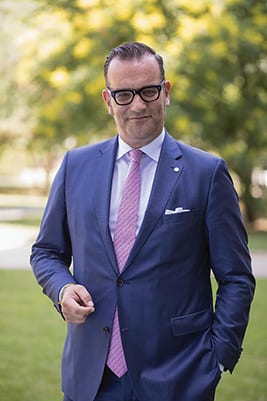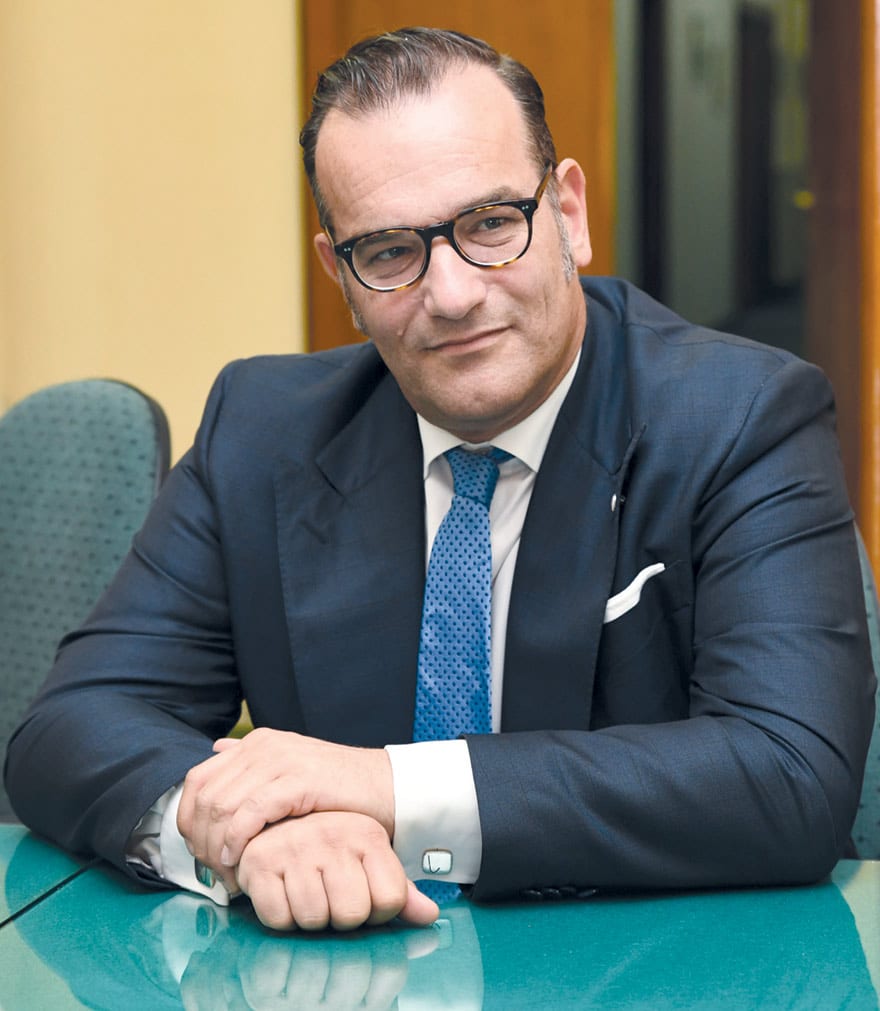Many German companies have been investing repeatedly in Serbia, expanding their production capacities, creating additional jobs and growing year on year. This commitment and these long-term investments are recognised by Serbian society.
As President of the German-Serbian Chamber of Commerce and CEO of Hemofarm Group, Dr Ronald Seeliger has the opportunity to gain the most detailed and profound insight into German investments in Serbia. As shown by his experience and communication with current and prospective German investors, Serbia could offer many opportunities for business development, but some of its potentials can only be utilised if the country persists in implementing bold reforms.
How do trends in the German economy impact on the activities of your members?
– I recently read an interesting remark about the impact of Germany on the economy of Europe as a whole, which goes: when Germany coughs, the rest of Europe gets pneumonia. At this moment, it is still too early to say whether the current economic situation in Germany is just a temporary slowdown or the beginning of a recession.
What makes us optimistic is certainly an example that illustrates the strength of the German economy and German companies.

Hemofarm became a part of Germany’s STADA Group in 2006, and since then STADA has invested as much as 300 million euros in the operations of its Serbian company. Hemofarm hosted a recent major gathering of STADA leaders when 150 of them came to Belgrade for a couple of days.
On that occasion, it was the journalists who asked STADA Group CEO Goldschmidt whether the current situation in Germany could possibly cause a halt to that company’s investments in Hemofarm and other affiliated companies across Europe. He replied by stating unequivocally that economic stagnation in Germany would not jeopardise STADA’s planned investments in Serbia, stressing that those investments were not related to the macroeconomic situation in Germany, but rather to the business results of a particular company. STADA has done well in the previous period, Hemofarm also, so planned investments of 20 million euros, in this and the next year, will be made.
The analysis of fDi Intelligence shows that Serbia, with a score of 11.92, is attracting almost 12 times the amount of Greenfield foreign direct investment than what might be expected given the size of its economy. To what extent do these numbers reflect interest coming from German investors?
– Germany is one of the largest bilateral investors in Serbia and I am proud of this statistic because it clearly shows not just our interest in this country, but also our tangible actions. German investors have one important characteristic – they view their business operations in Serbia over the long run and invest continuously.
German companies could become the end-users of the services and innovative solutions of Serbian start-ups
There are currently around 400 companies with German capital doing business in Serbia, and they employ 60,000 Serbian workers. Many German companies have invested repeatedly, expanded production capacities, employed additional workers, and grown year on year. This commitment and long-term investments are probably the main reasons why German investors were chosen as the most attractive in a survey conducted in Serbia a while ago.
While many sources recognise the positive changes in Serbia’s fiscal position, many – yourself included – advocate for further bold reforms. If you were a member of the government, what would be on your list?
– If I need to summarise my reply to this question, I would say that Serbia has succeeded in overcoming the major macroeconomic imbalances and the next task for the economy is to wake up and induce further growth. Some of the main challenges Serbia is facing are stagnant household incomes, a need for private-sector job creation and the structural reform of public enterprises, as well as strategic reforms in the public sector…Not to forget further reforms related to the rule of law and a more intensive fight against corruption, as well as the further strengthening of legal security and transparency in public procurement.
Both businesses and the government are saying that the lack of a competent workforce is becoming a rampant problem. Is the key to remedying this in labour legislation or somewhere else?
 – This problem cannot be tackled with only one measure, but rather a full range of different activities. There are different causes in the background, so we need to address all of them in order to solve the problem or make the situation better.
– This problem cannot be tackled with only one measure, but rather a full range of different activities. There are different causes in the background, so we need to address all of them in order to solve the problem or make the situation better.
The so-called brain drain, then an ageing population, changes within the economy, education that doesn’t suit market needs – here I’ve mentioned only a few of the major factors we need to deal with.
However, this is one problem that Europe as a whole – and not only Serbia – is facing at the moment, and it will be interesting to see how it will be solved at the global and national levels.
Your chamber has been very active in matching Serbian SMEs with major German companies, while the Serbian start-up scene also recently became interesting to you. What modalities of collaboration do you see?
– Over the last couple of years, apart from being recognisable in the sphere of traditional economic branches and sectors, Serbia has also been recognised through its achievements in the entrepreneurship and start-up sphere. Considering the importance of this new scene, AHK decided to deal more intensively with start-ups; our objective is to achieve a win-win situation for Serbian entrepreneurs in this field, investors, but also German companies as the end-users of the services and innovative solutions of start-ups here.
As one of the first steps, we conducted deep research of the start-up scene in Serbia, organised meetings with them and decided to introduce trial memberships for newly established and innovative start-ups.
Further reforms related to the rule of law and a more intensive fight against corruption, as well as the further strengthening of legal security and transparency in public procurement, are all important
Moreover, the start-ups usually present their ideas to potential customers repeatedly at so-called pitching events. The network of German Chambers of Commerce abroad has good experience with a kind of reverse pitching, in which large companies present their needs for innovative solutions to start-ups, who then offer their help in finding such solutions. This is one of the ideas we are considering introducing.
How have the needs of your members evolved over time and what new services does AHK provide for them?
– Our members range from language schools with one employee to large international corporations with thousands of workers. Obviously, their needs for consultancy could not be more different. That is the main reason our ‘menu of services’ is wide and diversified, and each case needs to be approached individually.
The best-seller at the moment is a kind of all-round carefree package for new investors. This means that our colleagues take a potential investor to locations and properties all over Serbia, organising talks with mayors or meetings with German companies that are already active in the country in order to familiarise newcomers with the local situation and perspectives.
Pharmaceutical companies are among the most advanced industry players. How does Hemofarm see the rise of the knowledge-based economy in Serbia and its role in it?
– Hemofarm grew from a small, local plant to a global player only because, on this long road, it had been fully aware of the need to embrace change, react promptly and anticipate trends whenever possible.
In these times of the Industry 4.0 revolution, digitalisation and artificial intelligence, it is really important that Hemofarm is a member of a larger, global family. We exchange knowhow, technology and standards with STADA; this is one high-quality exchange we have and profit from to the benefit of all – the company itself, patients and the health sector in general. In short, given that we operate in the pharma business, the knowledge-based economy was deeply rooted in Hemofarm’s operations even before this phenomenon got its name.
This is the 15th special edition on Germany that AHK has collaborated on with publisher aim. What value does this cooperation bring to our mutual readerships?
– I would like to think that this partnership was, and is, of mutual benefit. It is important for AHK to have this kind of reliable partner and long-term support in presenting Germany to the public here in Serbia and in the region. On the other hand, I hope that you’ve enjoyed cooperating and growing together with us.
| GROWTH
The next task for the Serbian economy is to wake up and induce further growth |
REFORMS
Stagnant household incomes, private-sector job creation and strategic reforms in the public sector all need to be tackled |
SERVICES
Our ‘menu of services’ for German companies coming to Serbia or already operating in the field is wide and well-diversified |
|---|